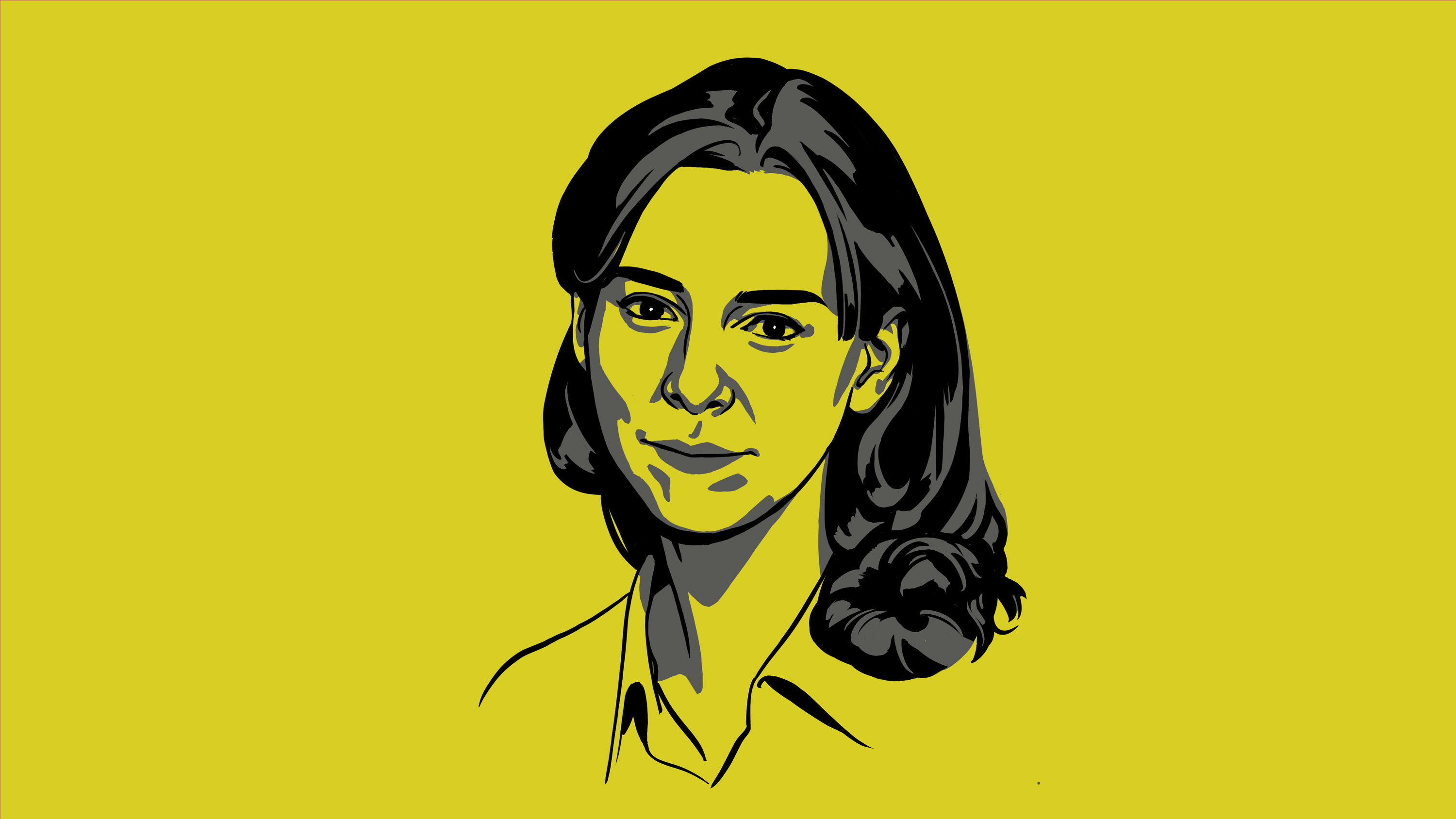Dina Katabi, SM ’99, PhD ’03

Dina Katabi, SM ’99, PhD ’03, came from a family of doctors in Syria, where she was born, but she abandoned medical school for a more math-focused life, studying electrical engineering at the University of Damascus and then computer science as a grad student at MIT, where she is now a professor.
In her early work, she came up with novel ways to prevent congestion in wireless networks, making things like Wi-Fi and cellular service faster and more efficient. To overcome the problem of interference—signals competing for the same pathway—she embraced it, developing a way to mix together signals from different sources and decode them on the receiving end.
A hallmark of her work, she says, is bridging disciplines, and her approach to wireless networks is unique in that it goes all the way from the signal to the application. “It’s not the traditional way people think about a field,” she says.
By the time she won a MacArthur “genius grant” in 2013, Katabi had turned her focus from how wireless signals carry data to how they bounce off people. Her team built a wall-mounted device that emits extremely low-powered radio waves and uses machine learning to extract information from the way those signals reflect off people’s bodies. Since the signals travel through walls, the device becomes a kind of x-ray vision that can measure a person’s heartbeat, breathing, gait, and more without any kind of wearable sensor. This information can also reveal emotional states and even distinct stages of sleep.
“The vision is to do passive monitoring for health and wellness,” Katabi says. The device could detect subtle changes in Alzheimer’s patients, for example, and monitor some effects of their medications. She thinks her technology could also make metrics like the pain scale more objective, yet another way to improve medicine.
Keep Reading
Most Popular
Large language models can do jaw-dropping things. But nobody knows exactly why.
And that's a problem. Figuring it out is one of the biggest scientific puzzles of our time and a crucial step towards controlling more powerful future models.
How scientists traced a mysterious covid case back to six toilets
When wastewater surveillance turns into a hunt for a single infected individual, the ethics get tricky.
The problem with plug-in hybrids? Their drivers.
Plug-in hybrids are often sold as a transition to EVs, but new data from Europe shows we’re still underestimating the emissions they produce.
Google DeepMind’s new generative model makes Super Mario–like games from scratch
Genie learns how to control games by watching hours and hours of video. It could help train next-gen robots too.
Stay connected
Get the latest updates from
MIT Technology Review
Discover special offers, top stories, upcoming events, and more.